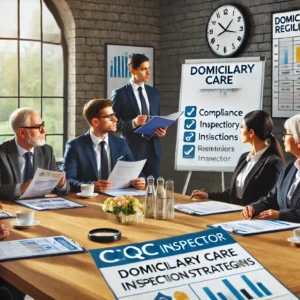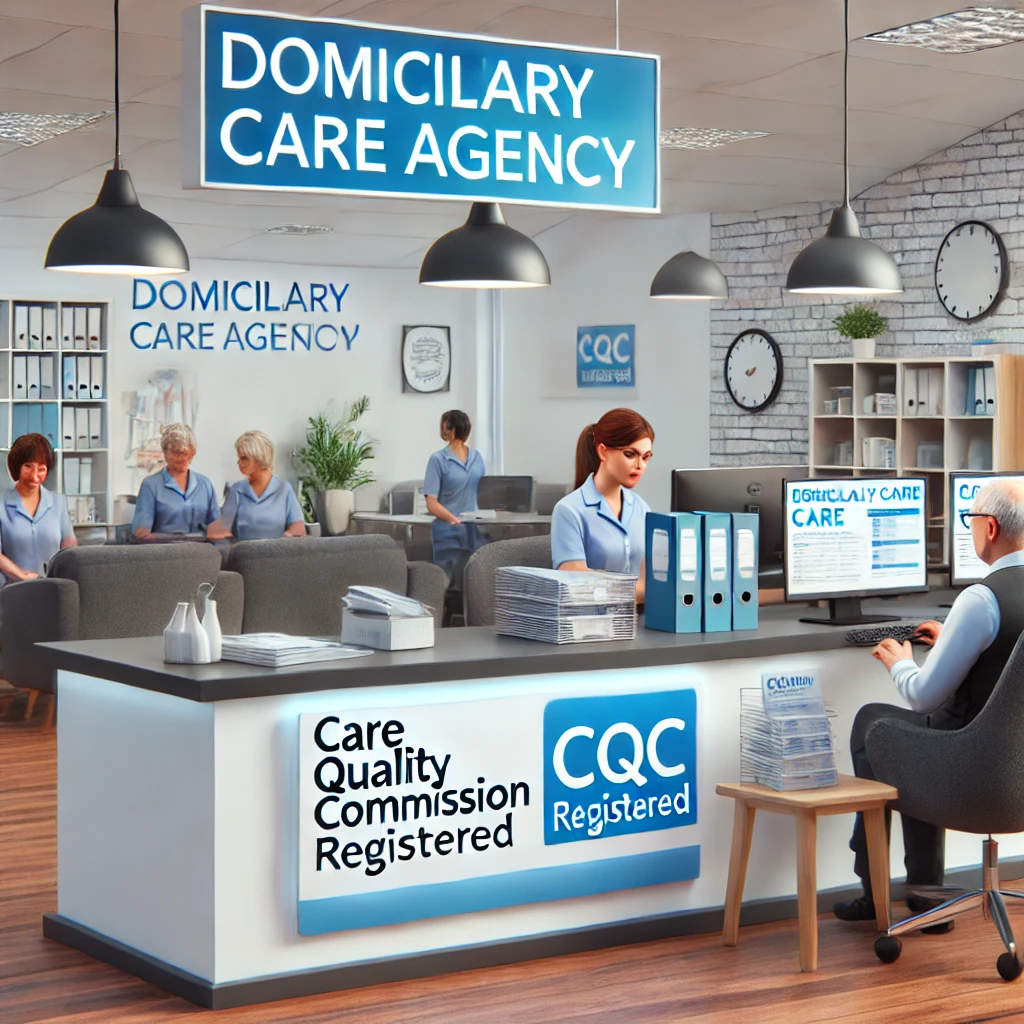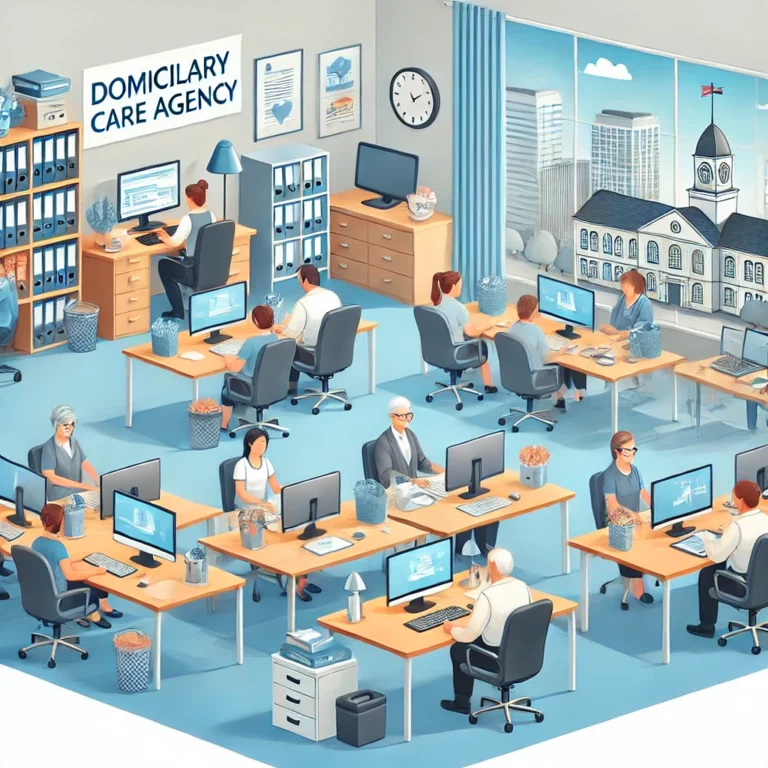Legal Requirements & Licenses Needed to Start a Domiciliary Care Agency in the UK
Last Updated on
Introduction to Domiciliary Care Agencies in the UK
Domiciliary care agencies provide essential services to individuals who need assistance with daily living activities in their own homes. These services are critical for maintaining the independence and quality of life of the elderly and those with disabilities or chronic illnesses. In the UK, starting a domiciliary care agency involves navigating a complex landscape of legal requirements and obtaining various licenses to ensure compliance and high standards of care.
Understanding the Legal Framework for Domiciliary Care Agencies
Overview of the Health and Social Care Act 2008
The Health and Social Care Act 2008 is the cornerstone of regulatory requirements for domiciliary care agencies in the UK. This legislation outlines the responsibilities of care providers and the standards they must meet to operate legally. It establishes the framework for ensuring that services are safe, effective, compassionate, and high-quality.

Key Regulatory Bodies: CQC, NHS, Local Authorities
The Care Quality Commission (CQC) is the primary regulatory body overseeing domiciliary care agencies. It ensures that providers comply with the Health and Social Care Act 2008 and other relevant regulations. Additionally, the NHS and local authorities play crucial roles in funding and overseeing the quality of care services.
Registration with the Care Quality Commission (CQC)
Application Process
Registering with the CQC is a mandatory step for all domiciliary care agencies. The application process involves submitting detailed information about the services offered, the management team, and the policies and procedures in place. The CQC assesses whether the agency meets the necessary standards before granting registration.
CQC Compliance and Standards
Compliance with CQC standards is essential for maintaining registration. These standards cover various aspects of care, including safety, effectiveness, and responsiveness. Regular inspections and audits by the CQC ensure ongoing compliance.
Obtaining Necessary Licenses and Permits
Business License Requirements
A business license is required to legally operate a domiciliary care agency. This license is obtained from the local authority and ensures that the business meets local regulations and standards.

Local Authority Approvals
In addition to a business license, approvals from local authorities may be necessary. This can include planning permissions if the business operates from a residential property and adherence to local health and safety regulations.
Health and Safety Requirements
Risk Assessments
Conducting thorough risk assessments is crucial for identifying and mitigating potential hazards to both clients and staff. These assessments should cover all aspects of the service, from the physical environment to the procedures followed by staff.
Health and Safety Policies and Procedures
Developing comprehensive health and safety policies and procedures is mandatory. These documents should outline the steps taken to ensure the safety and well-being of clients and staff, including emergency response plans and regular safety audits.
Data Protection and Confidentiality
GDPR Compliance
Domiciliary care agencies must comply with the General Data Protection Regulation (GDPR) to protect client information. This involves implementing strict data protection policies and procedures, including obtaining consent for data processing and ensuring data security.
Secure Handling of Patient Information
Maintaining the confidentiality of patient information is critical. Agencies must ensure that all personal and medical data is stored securely and accessed only by authorized personnel.

Employment Law Compliance
Hiring Qualified Staff
Hiring staff who are qualified and fit for the role is essential. This includes verifying qualifications, conducting interviews, and ensuring that staff have the necessary skills and experience.
DBS Checks and Verification
Disclosure and Barring Service (DBS) checks are mandatory for all staff working in domiciliary care. These checks help ensure that individuals with a history of abuse or neglect are not employed in care roles.
Insurance Requirements for Domiciliary Care Agencies
Public Liability Insurance
Public liability insurance protects the agency against claims from third parties for injury or damage caused by the agency’s operations. This insurance is crucial for covering legal costs and compensation.
Professional Indemnity Insurance
Professional indemnity insurance covers claims of negligence or inadequate care provided by the agency. This is essential for protecting against legal action and ensuring financial stability.
Employers’ Liability Insurance
Employers’ liability insurance is a legal requirement for agencies with employees. It covers claims from employees for work-related injuries or illnesses.
Training and Certification for Care Staff
Mandatory Training Programs
Care staff must undergo mandatory training programs to ensure they have the necessary skills and knowledge. This includes training in areas such as first aid, medication administration, and safeguarding.
Continuing Professional Development (CPD)
Ongoing professional development is vital for maintaining high standards of care. Agencies should provide opportunities for staff to attend additional training and stay updated on best practices.
Policies and Procedures Documentation
Creating a Comprehensive Policy Manual
A comprehensive policy manual is essential for outlining the operational procedures and standards of the agency. This manual should cover all aspects of care, including client assessments, care planning, and emergency procedures.
Emergency and Contingency Planning
Having robust emergency and contingency plans in place is crucial for dealing with unforeseen events. This includes plans for natural disasters, staff shortages, and other emergencies.
Ongoing Compliance and Inspections
Regular CQC Inspections
The CQC conducts regular inspections to ensure ongoing compliance with regulatory standards. Agencies must be prepared for these inspections and address any areas of improvement identified.
Continuous Improvement Strategies
Implementing continuous improvement strategies helps maintain high standards of care. This can include regular staff training, updating policies and procedures, and seeking feedback from clients and their families.
Related Article: How to Start a Domiciliary Care Agency in the UK?
FAQs about Legal Requirements & Licenses for Domiciliary Care Agencies
What are the most critical licenses needed?
The most critical licenses needed include CQC registration, a business license from the local authority, and relevant insurance policies such as public liability, professional indemnity, and employers’ liability insurance.
How often does the CQC inspect domiciliary care agencies?
The CQC typically conducts inspections every one to two years, depending on the agency’s previous inspection ratings and overall compliance with standards.
What are the penalties for non-compliance?
Penalties for non-compliance can include fines, suspension of services, and in severe cases, the revocation of the agency’s license to operate. Non-compliance can also result in damage to the agency’s reputation and loss of trust from clients and their families.







